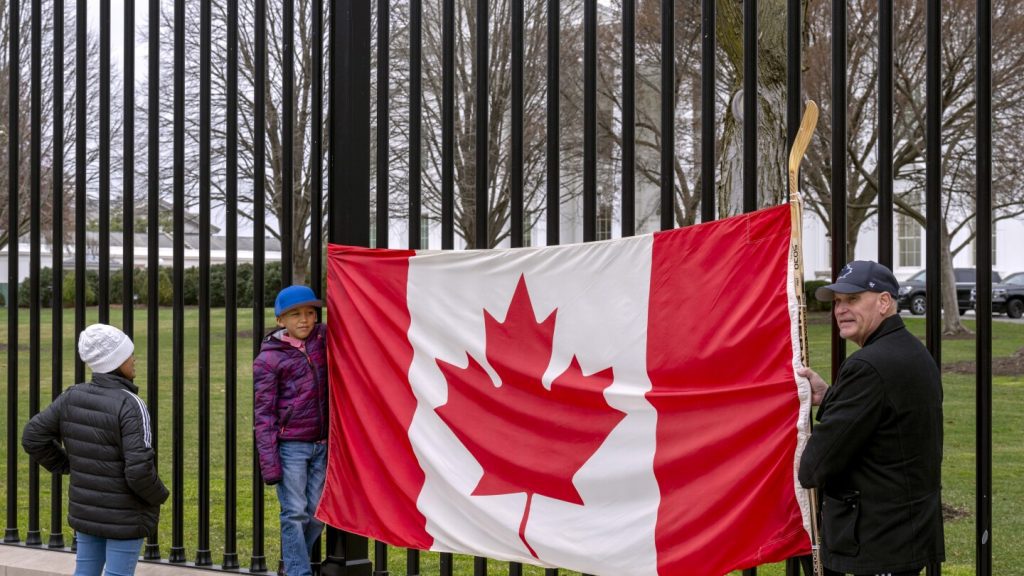Shifting Views on U.S.-Canada Relations Amid Trump Administration
WASHINGTON (AP) — Recent trends indicate that Americans view Canada and the U.S. as closer allies less than they did two years ago. This decline is seen as a result of President Donald Trump’s threats regarding tariffs and his provocative remarks suggesting the U.S. could dominate its neighboring ally, which has been damaging a vital economic and military partnership.
Poll Findings Reflect Political Shifts
The decline in perceived closeness to Canada is most pronounced among Democrats, although there is also a noticeable drop among Republicans. A recent poll from the Associated Press-NORC Center for Public Affairs Research showed that only about half of Democrats now view Canada as a close ally, down from roughly 70% prior to Trump’s time in office. Similarly, Republican perception of Canada as an ally fell from 55% to 44%.
Economic Deterioration and Public Sentiment
While many Americans still describe the relationship as “friendly,” less than half now define the U.S. and Canada as “close allies,” a drop from around 60% in a Pearson Institute/AP-NORC poll conducted in September 2023. Lynn Huster, a 73-year-old Democrat from Pennsylvania, expressed her discontent, stating, “He’s turning everybody against us,” referring to Trump’s approach to partnership with allies including Canada and the U.K.
Trump’s Foreign Policy Changes
The poll results come at a time when Trump has heavily reshaped U.S. foreign relations upon his return to office. His administration has implemented considerable tariffs on goods from Canada, Mexico, and China, with the latest being a 25% tax on imported automobiles. Next week, Trump has announced plans for new “reciprocal” taxes, reflecting tariffs from other nations, which he terms as “Liberation Day.”
Impact on Canada and Its Leadership
Trump’s actions have caused considerable irritation in Canada, where the relationship with the U.S. was traditionally viewed as familial. Discussions of U.S. statehood and derogatory remarks about Canadian leadership have resulted in deep-seated feelings of betrayal among Canadians. Prime Minister Mark Carney has asserted that Canada must now “look out for ourselves,” acknowledging a shift from viewing the U.S. as a reliable partner.
Divided Public Opinion on the Relationship
Despite differing perspectives, some individuals, like Shaya Scher, 35, a Republican from New Jersey, believe Trump’s tone is merely strategic, aimed at securing favorable negotiations. Nonetheless, others are more pessimistic about the long-term implications. Scott Cunningham, a Democrat from Indiana, stated, “Tariffs are really going to hurt relationships… I’m going to remember that,” reflecting a widespread sense of disappointment in how trade policies are damaging historic alliances.
Global Context and Broader Implications
The AP-NORC poll indicates that while about half of Americans still consider the U.K. a close ally, the perception is much lower regarding France, Germany, and the European Union. Meanwhile, both Russia and China are seen unfavorably by the majority of Americans, with significant portions labeling them as enemies. Despite these tensions, survey respondents from all political backgrounds noted that the U.S. remains militarily robust and capable of defending itself, regardless of fading alliances.
___
Colvin reported from New York.
___
The AP-NORC poll surveyed 1,229 adults from March 20-24 and is designed to reflect the U.S. population, with a margin of error of approximately 3.9 percentage points.



